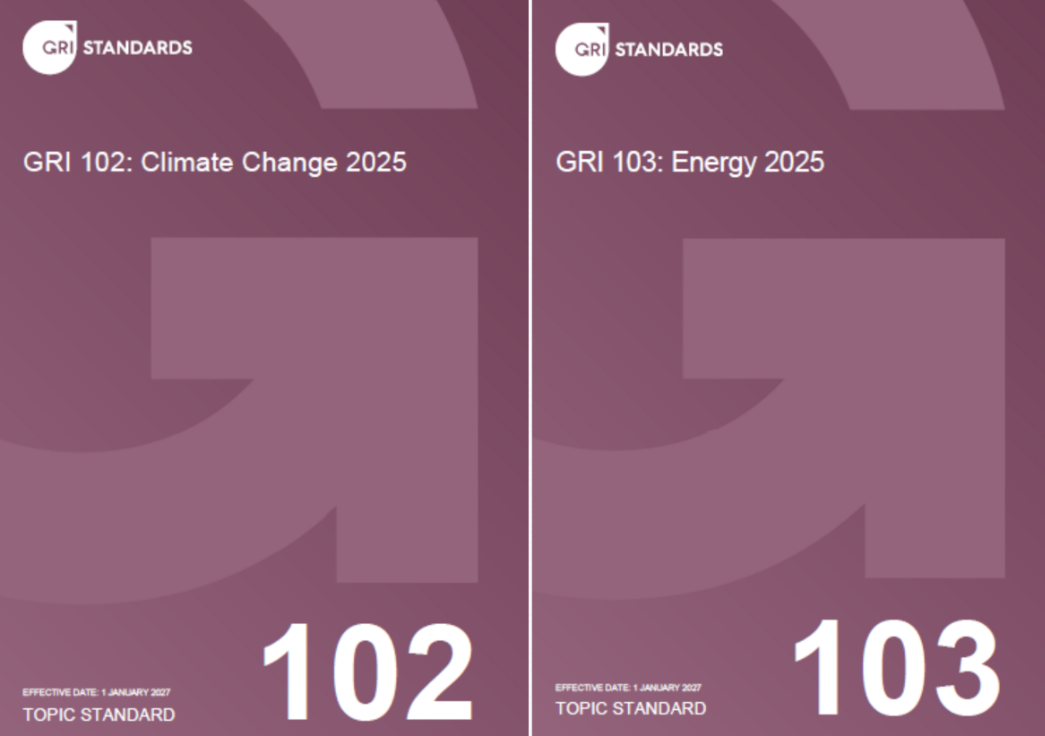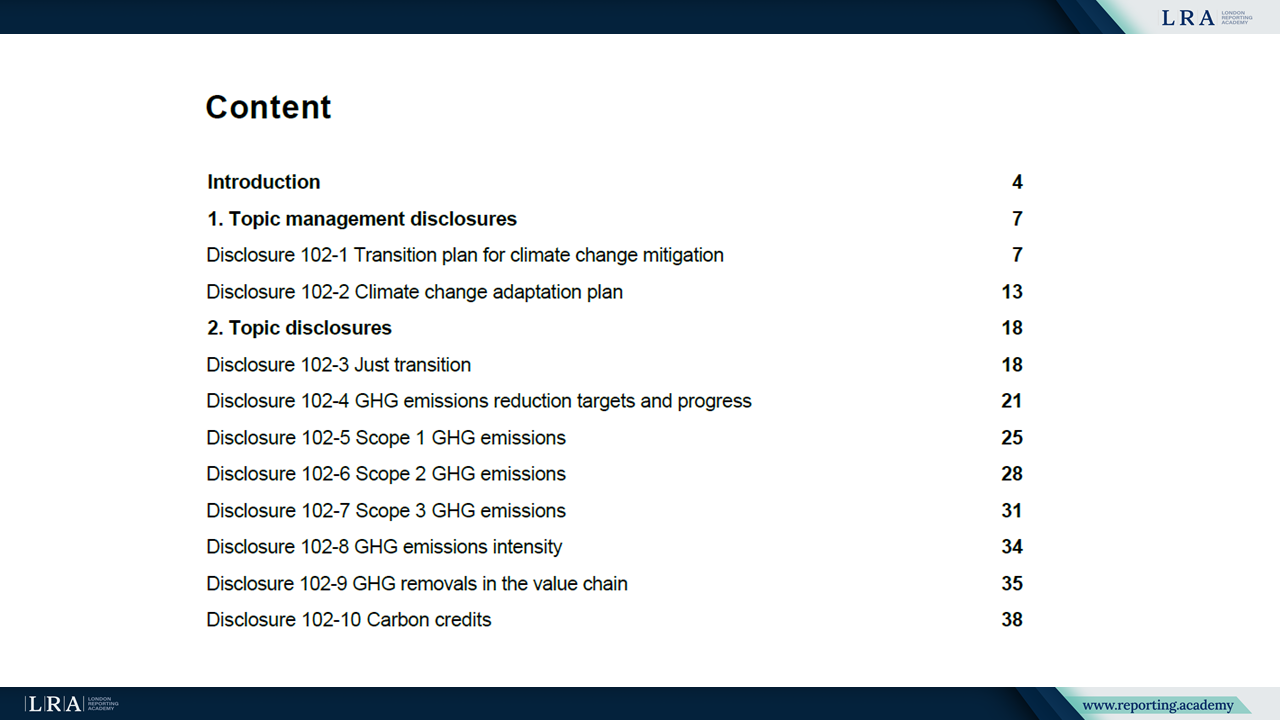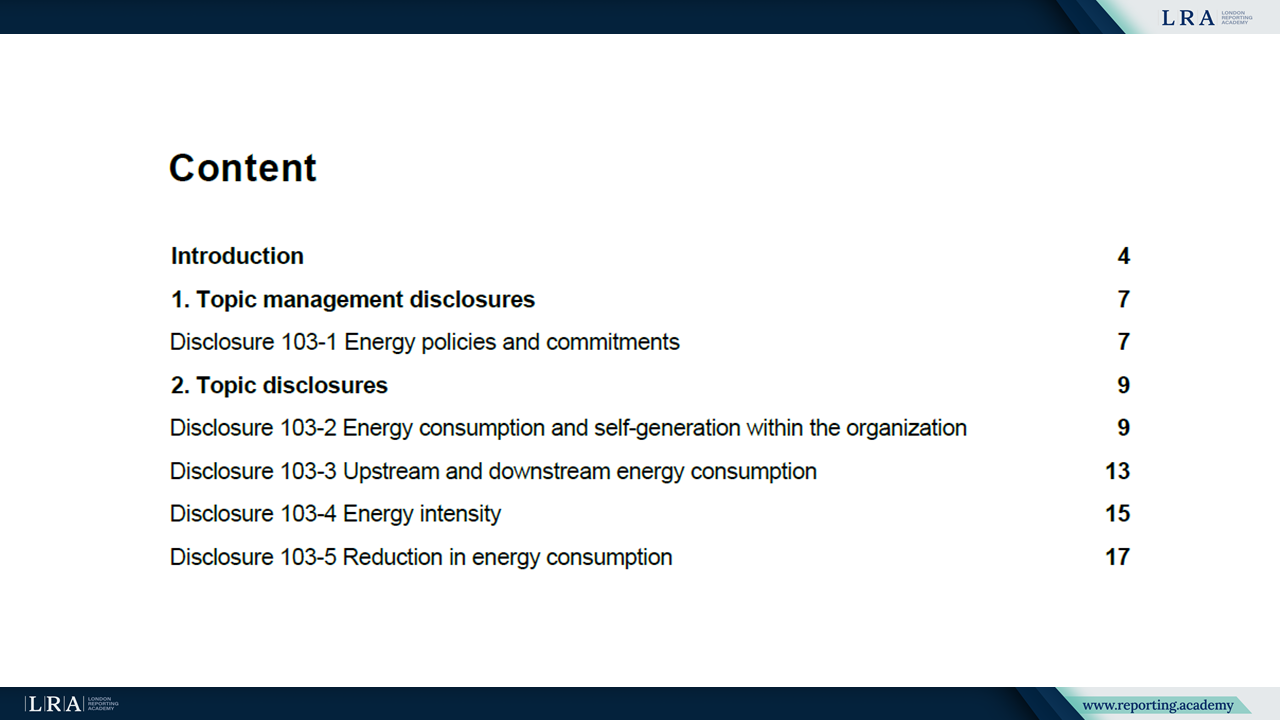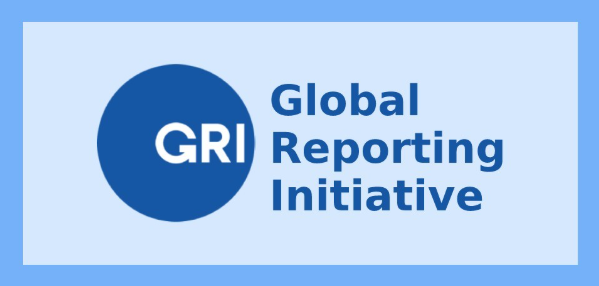New GRI Climate Change and Energy Standards: Content and Key Points
The new GRI 102 and GRI 103 standards set a clear direction for organisations aiming to enhance transparency in climate change and energy reporting. They offer aligned guidance to help organisations meet growing sustainability expectations.

The Global Reporting Initiative (GRI) has released two new Topic Standards: GRI 102: Climate Change 2025 and GRI 103: Energy 2025, effective from January 2027. These standards enhance transparency in corporate climate and energy disclosures while aligning reporting practices with global climate goals and scientific evidence.
Integration with IFRS S2: Climate-related Disclosures
According to the joint statement by the IFRS Foundation and GRI (June 2025), organisations can use GRI 102: Climate Change 2025 and IFRS S2 Climate-related Disclosures together to report comprehensively on climate impacts, risks, and opportunities.
This collaboration meets the needs of a wide range of stakeholders, including investors. Organisations reporting under both standards can use IFRS S2 disclosures for Scope 1, 2, and 3 greenhouse gas emissions to satisfy equivalent GRI 102 requirements, provided emissions are measured according to the Greenhouse Gas Protocol and properly referenced.
GRI 102 also complements IFRS S2 by covering transition plans, adaptation efforts, and just transition impacts, focusing on social and environmental aspects beyond financial risks.
This aligned framework reduces duplication, improves transparency, and supports decision-useful climate reporting aligned with global climate goals.
GRI 102: Climate Change 2025
This Standard can be applied by any organisation, regardless of its size, type, sector, location, or prior reporting experience, to disclose its climate change-related impacts. Organisations may omit disclosures for valid reasons, such as confidentiality or legal restrictions, but must clearly specify and explain these omissions in the GRI content index.

Source: GRI 102: Climate Change 2025
The GRI 102: Climate Change 2025 standard includes ten disclosures, covering key areas such as transition and adaptation plans, just transition, GHG emissions reduction targets, Scope 1, 2, and 3 emissions, GHG emissions intensity, removals, and carbon credits. It requires organisations to disclose their climate transition plans aligned with scientific evidence and just transition principles, adaptation measures for climate-related risks, and detailed GHG emissions data across scopes, including progress towards targets and use of carbon credits. This ensures comprehensive climate-related reporting to align with the 1.5°C goal.
GRI 103: Energy 2025
Like GRI 102, the GRI 103: Energy 2025 standard starts with a general introduction that applies to all GRI Topic Standards. This means any organisation – regardless of size, type, sector, location, or prior reporting experience – can use this Standard to report on their energy-related impacts. Organisations may omit disclosures for valid reasons, such as confidentiality or legal restrictions, but must clearly specify and explain these omissions in the GRI content index.

Source: The GRI 103: Energy 2025
The GRI 103: Energy 2025 standard consists of five disclosures:
- 103-1 Energy policies and commitments
- 103-2 Energy consumption and self-generation within the organization
- 103-3 Upstream and downstream energy consumption
- 103-4 Energy intensity
- 103-5 Reduction in energy consumption
It requires detailed reporting on total fuel and electricity consumption (renewable and non-renewable), energy intensity, and measures taken to reduce energy use, while also addressing impacts on people and the environment across the value chain. This standard ensures transparent, decision-useful energy reporting aligned with climate goals.
Conclusion
GRI 102 and GRI 103 establish clear, science-based frameworks for reporting on climate change and energy impacts. Aligned with global standards like IFRS S2 and the Greenhouse Gas Protocol, they support transparent, comparable disclosures. Effective from 2027, these standards help organisations meet stakeholder needs and advance sustainable, just transitions.



